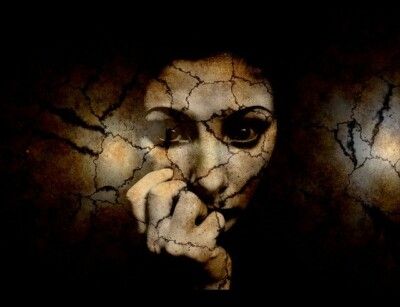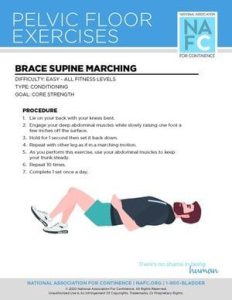Anxiety disorders and panic attacks as a mental illness

Anxiety disorders and panic attacks as a mental illness
When our very own instinct warns us of dangerous situations and puts us on the alert, we speak of the basic emotion of fear.
This is a completely normal and harmless protective mechanism of our body to be prepared for a possible danger and possibly to be armed for a fight or even flight.
In the Neanderthal age, this instinct was essential for survival in order not to end up as the breakfast of a carnivore. In today’s world we are no longer exposed to this risk.
Why does our body react or. our psyche nevertheless often with an excessive fear and panic reaction, without a danger, from which the concerning would have to flee, exists? What if the anxiety we feel gets derailed, takes on a life of its own and overwhelms us in harmless moments?
Then a mental illness is present, because the relationship between perception and evaluation is no longer correct. The threatening fear that is felt in these situations usually leads to a panic attack and those affected experience feelings of suffocation, sweating and also an increased heart rate, often ending in death fears.
These intense and uncontrollable feelings of fear lead to a daily struggle for survival, which those affected find difficult to conquer on their own. The vicious circle of anxiety disorder takes its course.
Types and causes of anxiety disorders
An anxiety disorder can be categorized into different types. Fear of driving, for example, puts the sufferer in an intense fear of an accident, of unfamiliar routes or highways, or of being stuck alone in nowhere with no prospect of quick help, even before getting into a vehicle.
In contrast, the anxiety disorder in people with a social phobia manifests itself in completely different situations. They fear social contact, closeness to other people and dislike being the center of attention.
The fear of suffering from one or more serious illnesses, which progresses increasingly insidiously, belongs to the anxiety disorder hypochondria. The constant and immediate control of their body and the resulting regular visits to a doctor make it difficult for sufferers to manage their daily lives.
Of course, this is only a small excerpt of what has already been diagnosed in anxiety disorders.
However, as is generally the case with mental illnesses, the causes usually lie in an early childhood experience, traumatic experiences or acute crises that put the body and psyche under prolonged stress.
As a result, the affected person is unable to release the blocked emotions and a trauma sequelae disorder develops. Because our organism wants to minimize this stress.
If he does not manage to do this on his own, a mental illness develops, which can also lead to compulsions or depression.
Symptoms of anxiety disorders
Depending on the type of disorder, those affected suffer from excessive fears and worries, which not infrequently end in panic attacks with restlessness and nervousness.
In addition, symptoms such as:
- Suffocation (hyperventilation),
- tightness of the chest,
- Chest pain,
- strong palpitations or even heart palpitations,
- Sweating, trembling, dizzy spells, fainting spells,
- numbness or tingling in limbs,
- Feeling of alienation,
- Dry mouth,
- spasmodic body tension,
- Weakness and drowsiness,
- Bladder pressure,
- Nausea
- and also short-term eye flickering.
Since the different symptoms often occur together, they are so overwhelming that the affected person fears to die from them.
It is not uncommon for the emergency doctor to be called, but he is unable to find anything abnormal, and even in the hospital no satisfactory answers are received.
Mostly a panic attack subsides by itself, this is different for each person, but the fear of the renewed attack remains and one falls without noticing it into a vicious circle from which one can no longer free oneself without help.
Expectation anxiety and avoidance behavior in anxiety disorders and panic attacks
The so-called “fear of fear” leads in the long run to an impairment in everyday life. Because the fear of having to fight such a battle for survival with themselves again drives people to avoid the feared situations.
Since the doctors cannot give them helpful answers to their symptoms, they start to arrange their everyday life in such a way that they do not have to expose themselves again to this so-called danger of experiencing a panic attack.
But this avoidance behavior leads to the own living space gradually becomes smaller and smaller, because the anxiety disorder expands and so more and more places or situations are added, in which the panic occurs.
Not infrequently, those affected withdraw so much that their social environment suffers and even their job is at risk. Because in severe cases, sufferers can no longer even leave their homes.
SeelenFrieden24 deals comprehensively with the topic of anxiety disorders and panic attacks and offers information on all aspects of mental illnesses.
Therapy and help for anxiety disorders and panic attacks
Without professional help, it is almost impossible for the affected person to free himself from his vicious circle and to alleviate his complaints on his own responsibility.
Above all, on the way to mental health, it is important to find the cause mentioned above and to remove the blockage so that body and psyche are again capable of appropriate stress management themselves.
Because only in this way the symptoms can be alleviated in the origin and later be defeated. A therapy for anxiety disorders and panic attacks therefore helps to find stability and to be able to start into a carefree life.
Nowadays, there are a wide variety of therapy options, starting with the psychologist in town and ending with online therapies.






